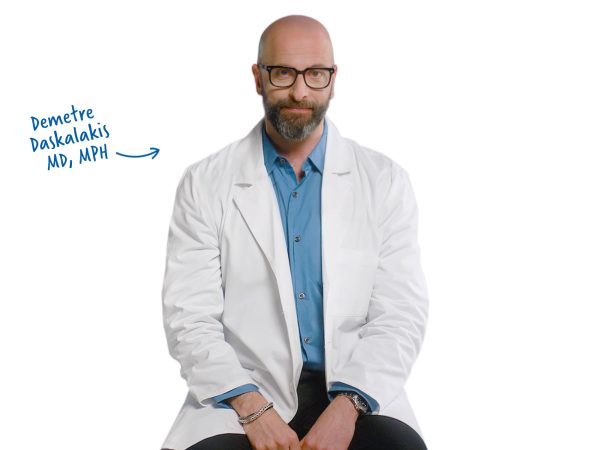Céline Gounder, MD, Infectious Disease Specialist answers questions about the mpox virus.
If you're eligible for vaccination against monkeypox, you should seek vaccination. It's the best way to bring an end to the spread of monkeypox to protect yourself and to protect your community. Monkeypox can be transmitted through contact with infected skin, mucosal surfaces, like the mouth, the vagina and the anus. The key here is having lesions which may be shedding virus. If you think you've been exposed to monkeypox you should check yourself carefully for lesions over the couple of weeks following that exposure.
Sometimes these lesions can be difficult to see if they're internal, and you may need the help of a friend or partner, medical provider, or even using a handheld mirror to examine yourself. So if you have or your partner has an active lesion that is not covered by condoms or dental dams, you could still see transmission.
There's also a risk of monkeypox transmission where people are in close contact as may be the case at a rave on the dance floor, at a sauna, and the like. And, so, we strongly recommend that you try to avoid skin-to-skin contact to the degree possible in those settings, or perhaps wear a bit more in the way of clothing or towels. The CDC also recommends other harm reduction techniques like masturbating with your partner on a virtual platform remotely. And if you use sex toys to be sure that you wash and clean those sex toys after use.
Monkeypox is not like herpes. Herpes can come back. You can have recurrent outbreaks over years. Monkeypox once you've had it and you have scabbed over your lesions, those scabs have fallen off and new skin has grown underneath. You are no longer infectious to other people.
For more on mpox, visit greaterthan.org/monkeypox.
Mpox vaccines are available!
Get protected against mpox. Vaccination is available at no cost at many locations. Your local health department can tell you more about options in your community. Find a vaccine near you.

